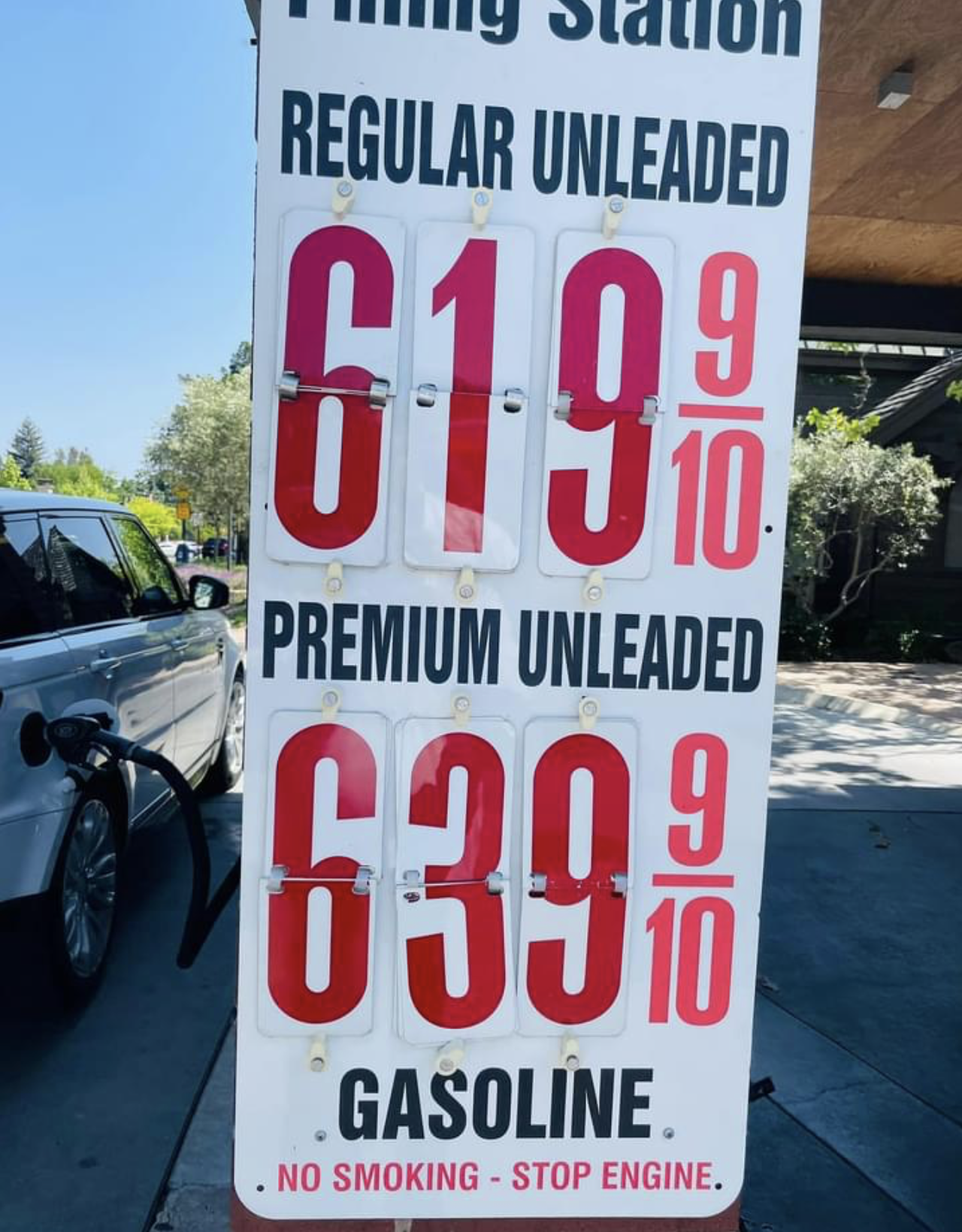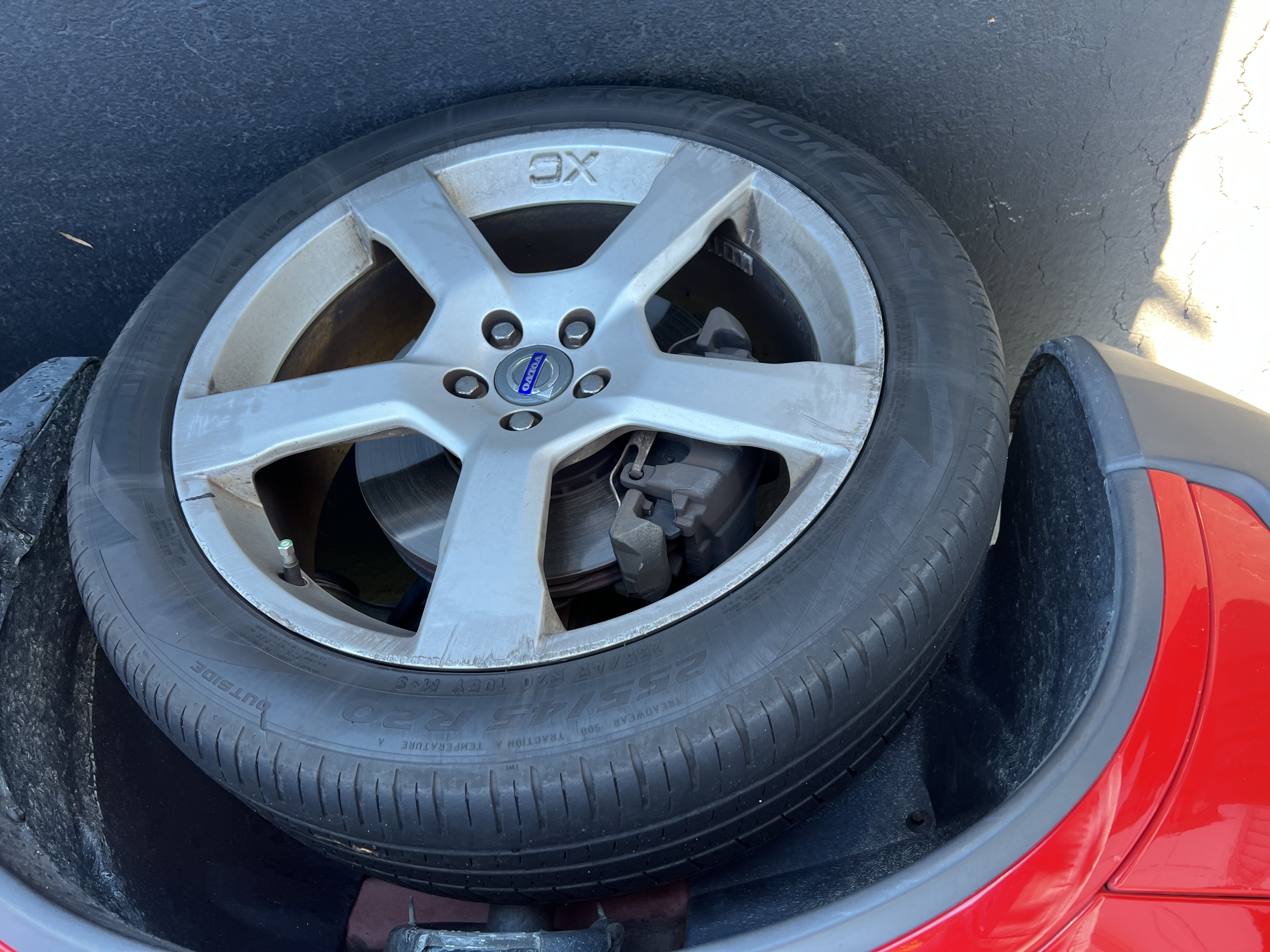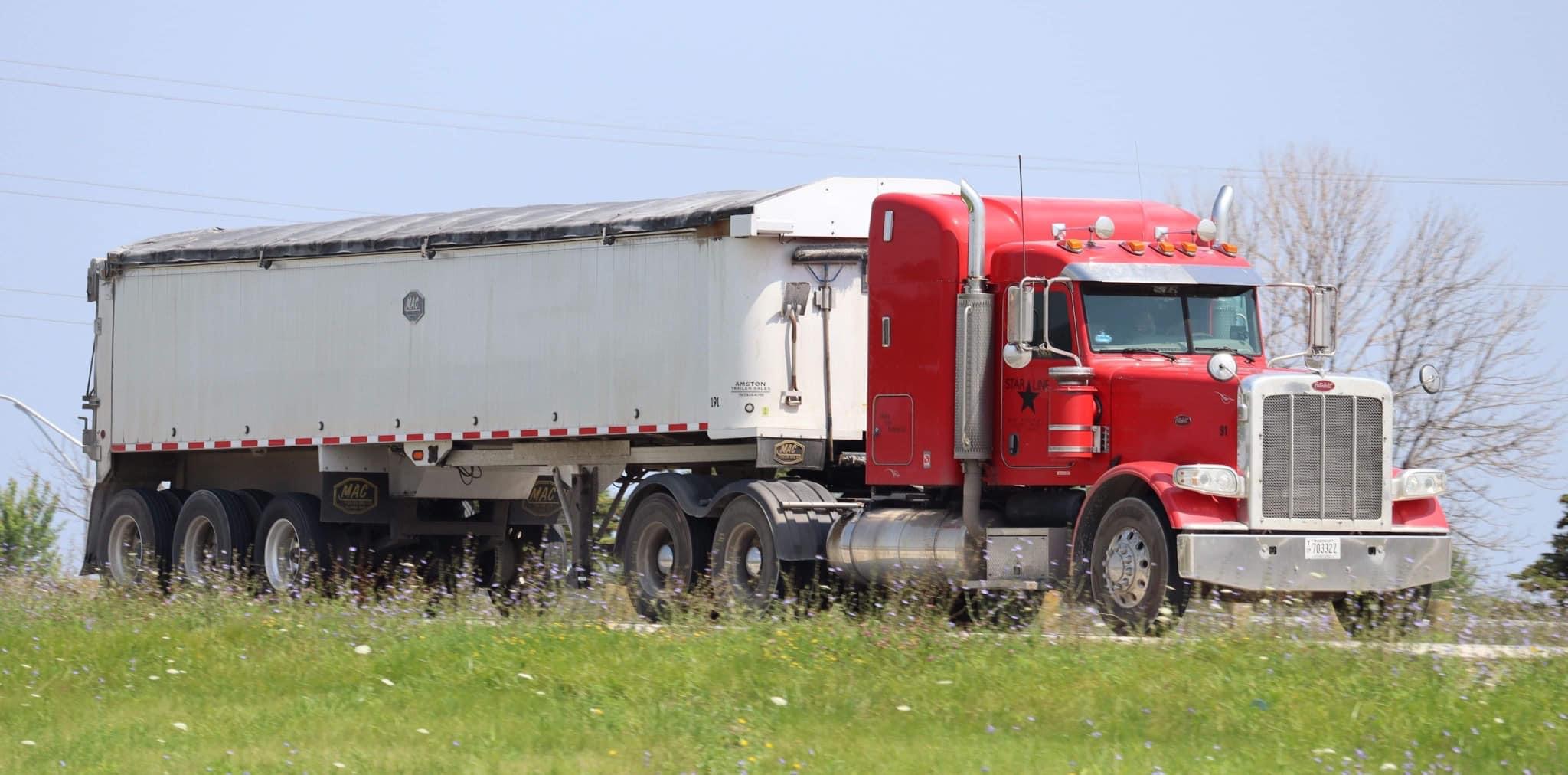At Fuel & Tire Saver Systems Company, LLC (FTS), we specialize in providing comprehensive tire optimization services aimed at enhancing the performance and efficiency of truck fleets. Our mobile onsite nitrogen tire inflation services, available across Virginia, Maryland, Pennsylvania, North Carolina, Tennessee, and Georgia, are specifically designed to cater to the unique needs of long-haul trucking companies.
Our tire optimization service is more than just inflating tires; it’s a holistic approach to improving fuel economy, extending tire life, and ensuring the safety of your fleet. By using nitrogen instead of regular air, we help maintain tire pressure for a longer duration. Nitrogen molecules are larger and less likely to seep through the rubber, resulting in more stable tire pressure and improved fuel efficiency.
FTS has proven results, reducing operational costs for companies like FedEx Ground significantly. Our service has helped FedEx Ground OTR (Over the Road) tractors increase their fuel economy from 6.4 MPG to 7.3 MPG, translating into an annual saving of 1500 gallons of fuel per vehicle.
Ready to see similar savings for your fleet? Request Fleet Pricing, contact our office at (703) 429-0382, or email Mike.LoPresti@fuelandtiresaver.com to get started today!
Table of Contents
ToggleFedEx Ground OTR Tractors Fuel Economy Improvement

The partnership between FedEx Ground and FTS Tire Optimization Service has yielded remarkable results in fuel economy improvement for their OTR (Over the Road) tractors. Prior to utilizing our services, FedEx Ground’s fleet was averaging 6.4 miles per gallon (MPG). However, with the implementation of our nitrogen tire inflation and optimization techniques, these tractors have seen an impressive increase to 7.3 MPG.
This boost in fuel economy is not just a minor improvement but a significant leap resulting in substantial savings and operational efficiency. By optimizing tire pressure and ensuring a more consistent inflation level, the rolling resistance of the tires is reduced, allowing the vehicles to travel further on the same amount of fuel. This change not only conserves fuel but also lessens the environmental impact by reducing carbon emissions.
To put this into perspective, the increase in MPG translates to saving approximately 1500 gallons of fuel annually per vehicle. For a fleet the size of FedEx Ground’s, these savings accumulate rapidly, providing both economic and environmental benefits. The reduction in fuel consumption directly impacts the bottom line, allowing the company to allocate resources more efficiently and sustainably.
Moreover, the improved fuel economy also means less frequent refueling stops, which contributes to better time management and productivity for drivers. The consistent performance and reliability of the fleet enhance overall operational efficiency, making FTS Tire Optimization Service a vital component in FedEx Ground’s strategy to maintain a competitive edge in the logistics industry.
Benefits of Improved Fuel Economy

Improving fuel economy in commercial trucking fleets, such as FedEx Ground’s OTR tractors, offers a multitude of benefits that extend beyond mere cost savings. When fuel efficiency is enhanced, the positive impacts reverberate through various facets of the business and the environment.
Firstly, the most immediate and tangible benefit is the reduction in fuel costs. With the increase from 6.4 MPG to 7.3 MPG, companies like FedEx Ground can save thousands of dollars annually per vehicle. This not only directly boosts profitability but also allows for strategic reinvestment in other critical areas such as fleet maintenance, driver training, and technological upgrades.
Secondly, enhanced fuel efficiency leads to a reduction in the frequency of refueling stops. This translates to increased driving time and productivity for drivers, ensuring that deliveries are made on schedule and operational efficiency is maximized. Improved fuel economy also means that vehicles spend less time off the road, leading to better asset utilization and prolonged vehicle life.
An often overlooked but equally important benefit is the positive environmental impact. Reduced fuel consumption means fewer carbon emissions. For large fleets, this can significantly lower the company’s carbon footprint, aligning with global sustainability goals and enhancing corporate social responsibility. This eco-friendly approach can also improve the company’s public image, attracting environmentally conscious clients and partners.
Lastly, better fuel economy contributes to improved vehicle performance and safety. Properly inflated tires, a key aspect of fuel optimization, reduce the risk of blowouts and other tire-related incidents. This not only ensures the safety of the drivers but also that of other road users.
In conclusion, the benefits of improved fuel economy are multifaceted, providing economic, operational, environmental, and safety advantages that collectively enhance the overall performance and reputation of commercial trucking fleets.
Impact on Fuel Savings and Costs

The impact of fuel savings and cost reductions achieved through improved fuel economy is profound, especially for large commercial fleets like FedEx Ground. The shift from 6.4 MPG to 7.3 MPG is not just a numerical improvement; it represents substantial financial savings and operational efficiencies.
Consider this: for a fleet of 100 OTR tractors, each traveling approximately 120,000 miles annually, an increase in fuel economy by 0.9 MPG can lead to a saving of approximately 1,500 gallons of fuel per vehicle per year. With diesel fuel prices averaging around $3 per gallon, this translates to a savings of $4,500 per vehicle annually. Multiplying this by a fleet of 100 vehicles, the total annual savings exceed $450,000. These figures illustrate the significant financial impact that optimized fuel efficiency can have on a company’s bottom line.
In addition to direct fuel cost savings, there are several indirect financial benefits. Improved fuel efficiency often results in lower maintenance costs. Efficiently running engines experience less wear and tear, extending the life of the vehicle and reducing the need for costly repairs. Proper tire inflation, a critical component of fuel optimization, also leads to longer tire life, further cutting down on replacement costs.
Moreover, the savings from reduced fuel consumption can be reinvested into the business. Companies can allocate these funds towards fleet expansion, advanced technology adoption, or driver training programs. This reinvestment can spur further improvements in operational efficiency and service quality, creating a positive feedback loop that enhances overall business performance.
The cost implications are not limited to the company’s finances. Improved fuel efficiency also means fewer emissions, which can result in potential tax incentives or credits for companies committed to reducing their environmental impact. This not only aids in regulatory compliance but also positions the company as a leader in sustainable practices, which can be a powerful marketing tool.
Ultimately, the impact on fuel savings and costs from enhanced fuel economy underscores the vital importance of investing in fuel optimization services. The financial, operational, and environmental benefits collectively contribute to a more sustainable and profitable business model.
Role of Nitrogen Tire Inflation
The role of nitrogen tire inflation in achieving better fuel economy and extending tire life cannot be overstated. Nitrogen, being an inert gas, offers several advantages over regular compressed air when used for tire inflation, contributing significantly to the overall performance and efficiency of commercial fleets.
One of the primary benefits of nitrogen inflation is its *consistency*. Tires filled with nitrogen maintain their pressure longer than those inflated with regular air. This is because nitrogen molecules are larger and less likely to seep through the rubber of the tire. As a result, tires remain properly inflated for longer periods, leading to more stable tire pressure and better fuel efficiency. Properly inflated tires reduce rolling resistance, which means the engine doesn’t have to work as hard, thereby saving fuel.
Additionally, nitrogen inflation helps to *reduce moisture* inside the tire. Regular compressed air contains water vapor, which can lead to rust and corrosion of the tire’s internal components. Over time, this moisture can cause the tire to deteriorate from the inside out, leading to premature tire failure and increased replacement costs. Nitrogen, however, is a dry gas and does not introduce moisture into the tire, thereby extending its life and ensuring safer operation.
Another key advantage is the *thermal stability* provided by nitrogen. Tires inflated with nitrogen are less prone to pressure fluctuations caused by temperature changes. This stability is crucial for OTR (over-the-road) tractors that experience varying temperatures and driving conditions. Consistent tire pressure helps maintain optimal contact with the road, enhancing traction and safety while further contributing to fuel efficiency.
Moreover, the use of nitrogen inflation is an environmentally friendly practice. By improving fuel efficiency and extending tire life, nitrogen inflation reduces the overall carbon footprint of the fleet. This aligns with the sustainability goals of many modern companies, including major logistics providers like FedEx Ground.
Incorporating nitrogen tire inflation into regular maintenance routines can lead to substantial long-term savings and operational benefits. It’s a small investment that yields significant returns, both in terms of cost savings and enhanced vehicle performance. For commercial fleets aiming to optimize their fuel economy and reduce maintenance costs, nitrogen inflation is a crucial component of a comprehensive tire management strategy.
Environmental and Safety Benefits

Beyond the immediate advantages of fuel savings and tire longevity, nitrogen tire inflation offers profound *environmental and safety benefits* that align with the evolving priorities of the transportation industry. As fleets like FedEx Ground strive to enhance operational efficiency, the environmental and safety aspects of nitrogen inflation become increasingly significant.
One of the most compelling environmental benefits is the reduction in carbon footprint. By improving fuel economy from 6.4 MPG to 7.3 MPG, nitrogen tire inflation helps save approximately 1500 gallons of fuel annually for each tractor. This decrease in fuel consumption translates directly to lower greenhouse gas emissions. Given the large scale of operations for companies like FedEx Ground, these savings can contribute significantly to global efforts in combating climate change.
Moreover, nitrogen inflation contributes to *tire longevity*, which means fewer tires are discarded prematurely. This not only reduces the demand for raw materials but also minimizes the waste and environmental impact associated with tire manufacturing and disposal. Extending tire life also means fewer replacements and lower resource consumption, supporting a more sustainable lifecycle.
On the safety front, nitrogen tire inflation plays a crucial role in maintaining optimal tire pressure, which is essential for safe driving conditions. Properly inflated tires provide better traction and handling, reducing the risk of accidents caused by blowouts or under-inflated tires. The *thermal stability* of nitrogen also ensures consistent tire pressure across varying temperatures, further enhancing safety during long hauls and in diverse driving conditions.
Additionally, nitrogen’s ability to minimize the presence of moisture within the tire prevents internal rust and corrosion, which can compromise tire integrity and lead to unexpected failures. This aspect is particularly important for heavy-duty trucks that endure significant wear and tear over long distances.
Incorporating nitrogen tire inflation into fleet maintenance not only enhances operational efficiency but also supports broader environmental and safety goals. By choosing nitrogen inflation, fleet managers can contribute to a safer, greener future while enjoying the practical benefits of improved fuel economy and tire performance.
Ready to optimize your fleet’s performance? Request Fleet Pricing, contact our office at (703) 429-0382, or email Mike.LoPresti@fuelandtiresaver.com to learn more about how our nitrogen tire inflation services can benefit your fleet.


